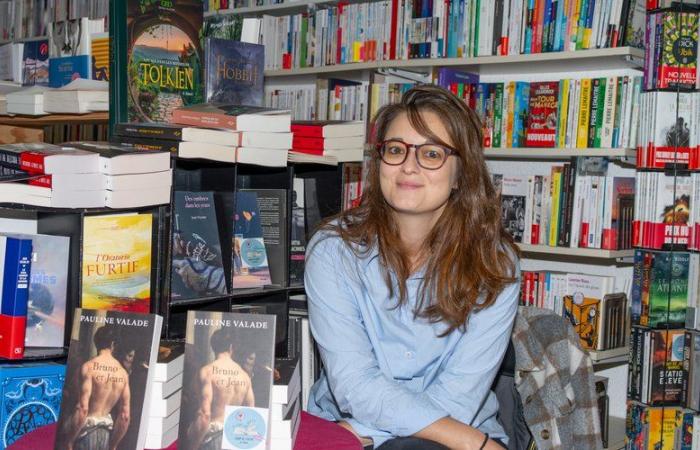the essential
A historian by training, originally from Bordeaux, Pauline Valade lives in Paris. A city that she brings back from a distant past in the heart of a heartbreaking humanity.
In an 18th century France that emerged weakened from the War of the Austrian Succession and a decried peace, how was good morals conceived? And more particularly, how was homosexuality perceived? This Wednesday, October 30, the “Le vent des mots” bookstore welcomed the historian and writer Pauline Valade on the occasion of the release of “Bruno et Jean”, her first novel published by Actes Sud. A historical novel which is striking for the richness of its descriptions, for the rawness of its story, which the brevity of the sentences contrasting with the elaborate writing, makes even more gripping. It is true that with “The Taste of Joy” published 3 years earlier, the author showed a certain inclination for 18th century society. But why, beyond its anecdotal aspect, made this choice of a true but mysterious tragedy, that of the condemnation of two male lovers? “These are the last two sentenced to death for homosexuality, and this conviction took place in 1750, in Paris,” comments Pauline Valade. “It is a judicial anomaly, because they should never have been executed, homosexuals were not punished with death at that time. It is therefore a judicial archaism which cannot be explained historically” .
Enough to challenge a historian. And require lengthy research in the national archives. However, what punctuates them most often are the gaps, the gaps, which sometimes make the work of cross-checking almost impossible and only lead to questions: “There is an element of fiction, since I write, I invent the lives of these two men from bits and pieces that I learned in the court archives,” the writer points out. “They are two men of the people. Bruno was a 20-year-old shoemaker; Jean was a little older, he was 40, and was a servant for a butcher's shop. Two men of the people who had no protection in high places. My “The work was to bring them back to life to create empathy with these people, so as not to forget them, and finally to restore the atmosphere of Paris in 1750.”
With her rigor as a historian, Pauline Valade does much more than restore an era: through the lines of her work, all of Paris comes back to life with cinematic clarity, around characters that one might believe taken from a Zola novel. he had lived under Louis XV. A powerful and deeply human work which gives the unsettling feeling of having gone back in time.
France
Books






